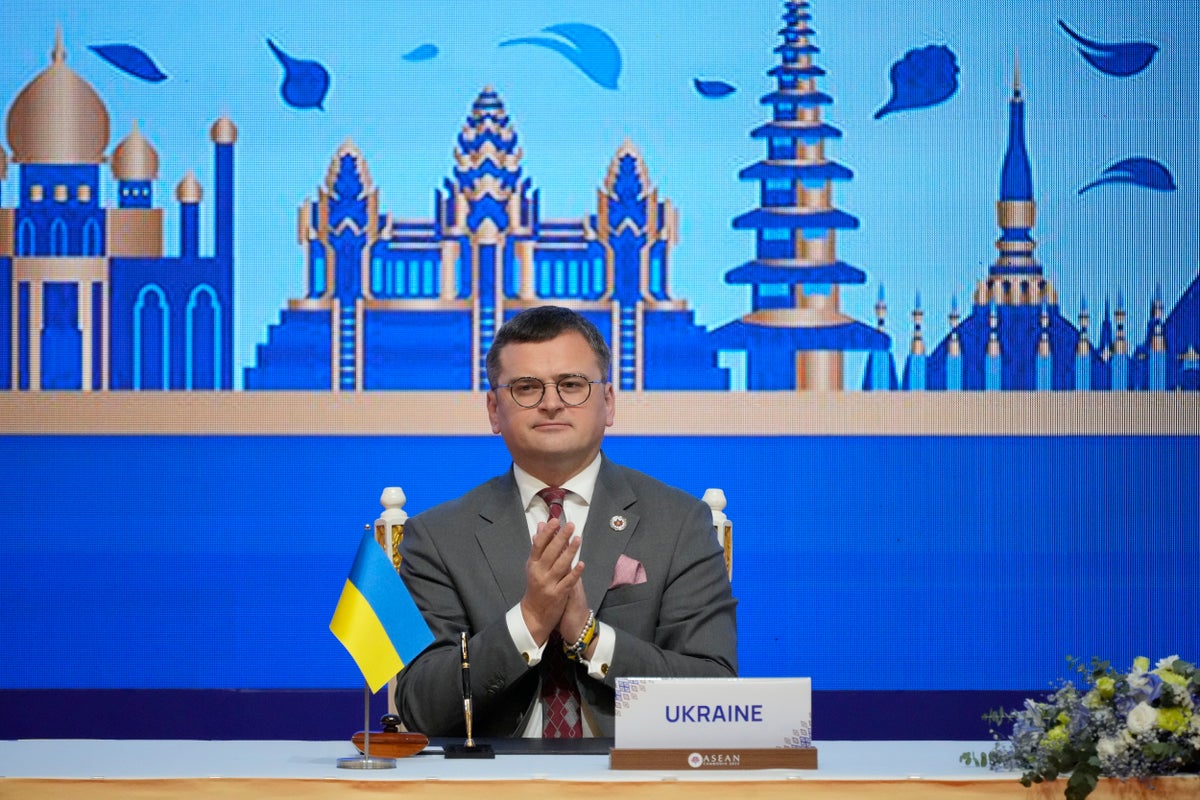
Ukraine signed a peace accord Thursday with Southeast Asian nations, a largely symbolic act that comes as Kyiv seeks to shore up international support in isolating Russia.
Ukrainian Foreign Minister Dmytro Kulbela signed the “Treaty on Amity and Cooperation in Southeast Asia” as the annual summit of the Association of Southeast Asian Nations got underway in Phnom Penh.
The ASEAN summit kicks off a series of three top-level meetings in Asia, with the Group of 20 summit in Bali to follow and then the APEC economic forum in Bangkok. They come as Russia seeks new markets for its energy products to avoid Western sanctions following its invasion of Ukraine.
As a group, the ASEAN nations, with a combined population of nearly 700 million, have been reserved in their stance toward the invasion, condemning the war but generally trying to avoid assigning blame. Eight of 10 ASEAN countries did vote in favor of the U.N. General Assembly resolution condemning Russian aggression, with Vietnam and Laos abstaining.
Member state Singapore has taken the strongest stance, imposing unilateral sanctions on Russia, while Cambodia has been increasingly supportive of Ukraine in its ASEAN chairmanship.
In an early November call with Ukrainian President Volodymyr Zelenskyy, Cambodian President Hun Sen stressed the need for an end to the war “so that Ukraine can regain peace, stability, territorial integrity and development,” according to Hun Sen's office.
“Cambodia is against the aggression, the threat of or use of force over sovereignty and the territorial integrity of an independent state, and does not support the secession or the annexation of territory by other countries," Hun Sen said on the call.
The Cambodian leader also pledged to support Ukraine's aspirations to become a “Sectoral Dialogue Partner” with ASEAN, a step toward the full "Dialogue Partnership" the group has with Russia, China, the United States and others.
The “TAC” peace treaty established in 1976 commits parties to “mutual respect for the independence, sovereignty, equality, territorial integrity and national identity of all nations,” among other things.
Ahead of the summit, Daniel Kritenbrink, U.S. assistant secretary of state for East Asian and Pacific affairs, said the inclusion of Ukraine was important, especially since Russia's invasion “has sent shockwaves throughout the Indo-Pacific, including Indo-Pacific economies, as we've seen through rising energy and food prices.”
He told a panel hosted by Washington’s Center for Strategic and International Studies in late October that the U.S. would work with ASEAN to “ensure that Ukraine meaningfully participates and that the partners send a strong message that big countries cannot simply take what they want from smaller neighbors.”
ASEAN is made up of Cambodia, the Philippines, Malaysia, Indonesia, Laos, Singapore, Thailand, Vietnam, Brunei and Myanmar. Myanmar's leaders are not being allowed to participate in the current meetings due to ongoing violence in the country, and rejected the offer to send non-political representatives.
U.S. President Joe Biden is attending the ASEAN and parallel East Asia Summit talks in person, while Russian President Vladimir Putin is not — with Moscow instead believed to be sending Foreign Minister Sergey Lavrov, though that is not yet confirmed.
Indonesia confirmed Thursday that Putin will also not attend the G-20 summit in Bali next week, and it seems unlikely he will attend the Asia-Pacific Economic Cooperation summit in Bangkok that follows.
Putin's absence should leave the door open for Ukraine to try and win more support, wrote Susannah Patton, the director of the Southeast Asia Program at the Lowy Institute, in an analysis published Thursday.
“While opinion in Asia about Russia's invasion of Ukraine remains mixed, the summits look likely to be better for Ukraine than Russia, and Putin's absence will undercut talk of a Russian pivot to Asia,” Patton said.
_____
Rising reported from Bangkok







